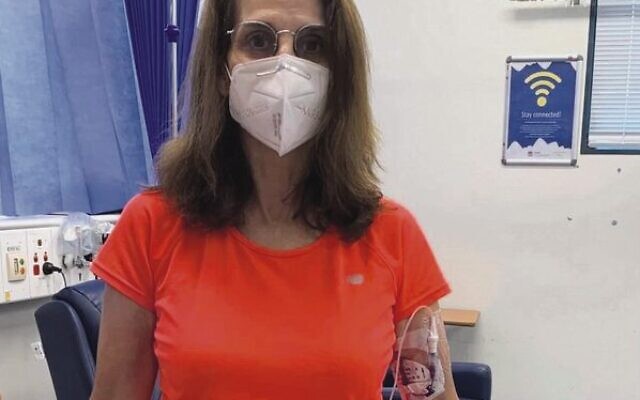The good fight against rare cancers
'Even though only about 18 per cent of people who contract a cancer fit that definition, it turns out that there's a disproportionate amount of cancer deaths in that group'
After being unexpectedly diagnosed with stage III rectal cancer in December 2021, Odile Faludi decided to pour her energy into raising funds for research into the diagnosis and treatment of rare cancers. Her goal of $100,000 for the Walter and Eliza Hall Institute of Medical Research (WEHI) will fund vital research and clinical trials of rare cancers, opening avenues of information for both patients and specialists.
Faludi told The AJN that after spending the first 59 years of her life healthy and illness free, she “knew instinctively something was wrong”.
The rare squamous cell cancer, which affects only six out of 100,000 people, impacted every aspect of her life.
“I had done all the tests and people had their ideas of what was wrong with me, but nothing was pointing to cancer,” she said.
“I had a colonoscopy, and there was a four-centimetre tumour in my rectum, and that’s why I couldn’t walk, I couldn’t sit, I couldn’t stand, and really last year I was just in excruciating pain.”
Her fundraiser supports research at the Australian Rare Cancer (ARC) Portal, a clinic led by Professor David Goldstein in Sydney and Melbourne’s Professor Clare Scott, which supports rare cancer patients and their specialists.
Goldstein said rare cancer research receives minimal funding due to a common misconception about the “rare” status.
“Even though only about 18 per cent of people who contract a cancer fit that definition, it turns out that there’s a disproportionate amount of cancer deaths in that group,” he said.
“It’s actually affecting a lot of people … and it also tends to affect younger people. So taken together, the problem of rare cancers needs to be addressed more systematically.”
He said the knowledge base around rare cancers for any one cancer expert was limited, forcing patients to see multiple specialists before receiving a diagnosis.
“It takes time to get a diagnosis and that takes an inordinate amount of time to work out what the best treatment should be. And regrettably often it turns out it’s not that well understood,” he said.
“Odile very kindly, when she discovered she had a rare cancer, said, ‘What can I do to help to accelerate this process?’ And that’s where the funding comes from.”
Faludi said setting up the fundraiser, which has so far raised almost 40 per cent of her goal, has given her a “sense of purpose”.
“You need to have purpose. You need to have a reason to wake up in the morning, because cancer strips you of everything. Your whole life is interrupted,” she said.
“When I wake up in the morning, the first thing I think of is, ‘How can I help the fund?'”
Donate: mycause.com.au/page/288521/odiles-good-fight-against-rare-cancers


comments